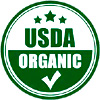Quick Facts
Name: D Limonene
Chemical Name: P-Mentha -1.8-Diene
Chemical Formula: C10H16
Appearance: liquid
Molecular Weight: 136.24
Odour: sweet citrus odour
Specific gravity: 0.837 to 0.845 at 25°C
GLC Purity: 95%
Refractive Index: 1.470 to 1.474 at 20°C
Colour: colourless
Limonene is a colourless liquid hydrocarbon classified as a cyclic terpene. It possesses a strong smell of orange and used in chemical synthesis as a forerunner to carvone and as renewable based solvent in cleaning products. The name Limonene is derived from the word lemon and like any other citrus fruits it contains big amount of this compound which contributes to this odour. Limonene is chiral molecule and the biological sources produce one enantiomer. The principle industrial source is citrus fruit and it contains D-limonene. The racemic limonene is known as dipentene and it is obtained commercially from citrus fruits. Limonene is a stable terpene and can be distilled without decaying. But it tends to crack at elevated temperatures to form isoprene.
Extracted from Citrus Fruits
Limonene oxidizes easily in moist air to produce carveol, carvone and limonene oxide. It undergoes dehydrogenation with sulphur to form p-cymene. Limonene is formed from geranyl pyrophosphate through cyclization of a neryl carbocation. The final step involves loss of a proton from the cation to form alkene. The other common names of D-Limonene are Lemon extracts, R-Limonene, Orange peel oil, citrus peel oil, citrene, alpha limonene etc. D-limonene is extracted commercially from citrus fruits through two primary methods which is centrifugal separation and steam distillation. Limonene is widely and popularly converted to carvone and the three step reaction begins with the regioselective addition nitrosyl chloride across the tri-substituted double bond. This is then converted to oxime with the base and hydroxylamine removed to give carvone which contains ketone.
Used in Many Products
Limonene is widely used in cosmetic products and D-limonene is used in food manufacturing and in select medicines. It is used as a flavouring to cover the bitter taste of alkaloids and also as a fragrance in perfumeries, aftershave lotions, bath products and many other products. D-limonene is used as botanical insecticide and also added to cleansing products like hand cleansers to give that added touch of lemon/orange fragrance. D-limonene is good as a hand wash because of its power to dissolve oils. It can be used as a medicine to relieve gastric diseases and heartburn sensation due to gas.






